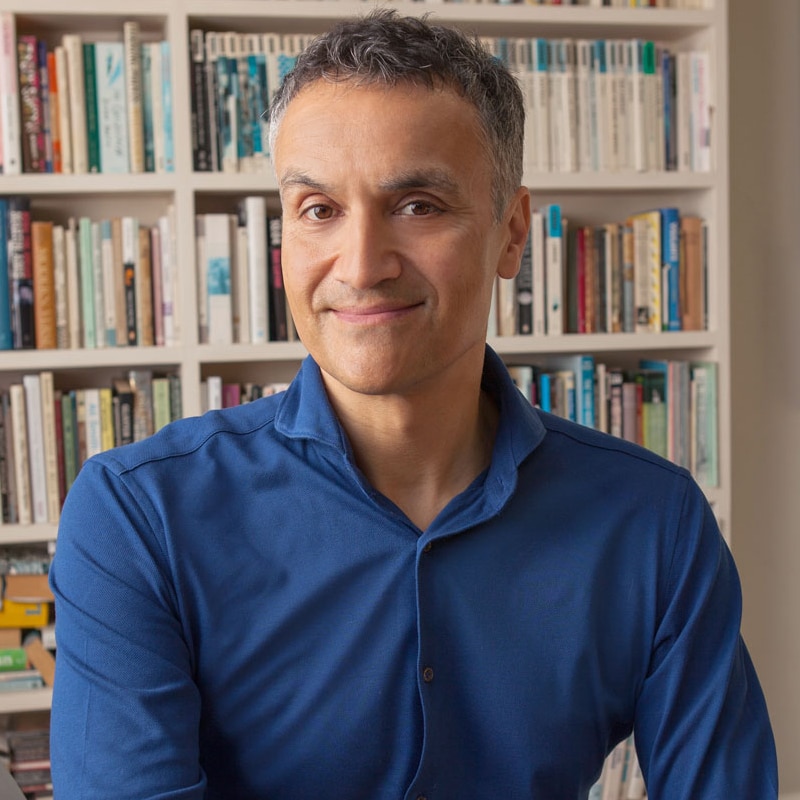
#67
The Global Guru on the Power of Slowing Down
Carl Honoré
Carl Honoré is an award-winning writer, broadcaster, TED speaker, Ageism Disruptor, and voice of the global Slow Movement. Carl travels the world to deliver powerful keynotes that put time and tempo in a whole new light. His counter-intuitive message is simple but game-changing: to thrive in a fast world, you have to slow down.
Carl has written four books: ‘In Praise of Slow’, ‘Under Pressure’, ‘The Slow Fix’, and ‘Bolder: Making the Most Of Our Longer Lives’. He lives in London but is originally from Canada. He is also an advisor to Jack Media and has presented on a variety of television series.
Subscribe
Find the show on your favourite player
Summary
02:45 Carl’s ‘aha moment’ with slowing down
- He was reading bedtime stories to his son, and would skim read and skip pages to finish the book quicker – and his son noticed this and wanted Carl to slow down and read the book properly
- A lot of us get stuck in ‘fast-forward’
- If he didn’t have this moment with the bedtime story, it would have been with something else more disruptive down the line
07:56 At what age do we start to ‘speed up’?
- We live in such a strong culture of speed that children can pick up on this pace from a young age
- Carl’s son’s first phrase was “hurry up”
09:02 The stigma around slowing down
- Even after a post-covid world, there is still a positive association with ‘being busy’
- It’s instinctive that we are aware of our own mortality, therefore time is finite
- When we start measuring time with clocks in the Medieval times, people began to be more tied to schedules
- “Time is money” was coined by Benjamin Franklin over 200 years ago
- “Man measures time, and time measures man” – Italian proverb
- The Industrial Age brought in speed to society
- We have linked time, speed and productivity with wealth
13:35 How to disentangle ourselves from speed culture
- “Slow down slowly”
- Be aware of slow-washing
- Slow is an incremental process – it takes time to shift gears and experiment
17:33 Can we learn from other cultures about slowing down?
- Being fast is not a Western affliction – it’s a modern late-capitalism malady
- We can learn from southern Europeans with their slow pace, from food, siestas to socializing
- Nature and its rhythms is the ultimate ally for the slow movement, so learn to live in symphony with nature
22:14 The benefits of slowing down
- “How can I experience this moment, not as fast as possible, but as well as possible?”
- Slowing down boosts your physical and mental health
- You cannot speed up social connections and relationships
- There is a strong link between slowness and creativity
27:59 The pace of the Slow Movement Revolution
- It’s still going at a slow pace
- People often enter the Slow Movement for more specific, personal reasons such as health or work, but as they slow down they start to grapple with bigger questions – and become agents of a wider change
32:41 The gaps formed from slowing down
- Culturally we are afraid of liminal space, and we move on to the next big thing after another
- We need pause points – moments that can’t be mapped out or timed, but simply be allowed to unfurl
39:16 Are there signs that the world is slowing down?
- Technology is helping to facilitate slowing down, through screen time, meditation, etc.
- The pandemic gave people enough time to change habits
43:49 The difference between mindfulness and the slow movement
- There is a big overlap between mindfulness and slowness
- Mindfulness is a great way to ease into the slow movement
46:22 Minimalism
- Slowing down means you focus more on what matters, which inevitably leads to streamlining and pruning what you really need in life
- “The fast life is superficial”
- We are a very status-conscious species
- Consumption and consumerism is often a mechanism of denial or running away from what is important
- “It’s the small, slow moments which we remember the most”
52:36 Is slowing down a privilege?
- “Everything is easier with money”
- “If you want to go fast, go alone; if you want to go far, go together” – African proverb
- Slowing down is not just about being a better individual, but a better citizen for society
56:18 The addiction to quick fixes
- There is a dopamine rush from doing shortcuts and we have a cultural push to do things faster
59:38 Ageism in society
- The older you get, the more invisible you get
- Old age is often perceived negatively, but there are plenty of things that get better through age
- We need to change the visual landscape of age in the media
Links Mentioned: